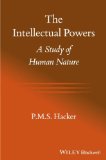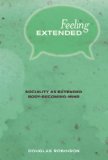October 3, 2013

Memory: Encounters with the Strange and the Familiar by John Scanlan (Reaktion Books)
(amazon.co.uk)
Book description from the publisher:
When we think of getting older, we know we will slowly lose more and more of our memory—and with it, our sense of where we belong and how we connect to others. We might relax a little if we considered the improvements in computer data storage, which may lead us into a future when the limits of our memory become less constricting. In this book, John Scanlan explores the nature of memory and how we have come to live both with and within it, as well as what might come from memory becoming a process as simple as retrieving and reading data.
Probing the ways philosophers look at memory, Scanlan reveals that some argue that being human means having the ability to remember, to see oneself as a being in time, with a past and future. At the same time, he shows, our memories can undo our present sense of time and place by presenting us with our past lives. And in a digital age, we are immersed in a vast archive of data that not only colors our everyday experiences, but also supplies us with information on anything we might otherwise have forgotten—breaking down the distinction between the memories of the individual and the collective. Drawing on history, philosophy, and technology, Memory offers an engaging investigation of how we comprehend recollection and how memory, as a phenomenon, continually remakes everyday life.
Comments (0)
- new books,philosophy of mind,psychology
September 7, 2013

The Intellectual Powers: A Study of Human Nature by P.M.S. Hacker (Wiley-Blackwell, 2013)
(amazon.co.uk)
Book description from the publisher:
The Intellectual Powers is a philosophical investigation into the cognitive and cogitative powers of mankind. It develops a connective analysis of our powers of consciousness, intentionality, mastery of language, knowledge, belief, certainty, sensation, perception, memory, thought, and imagination, by one of Britain’s leading philosophers. It is an essential guide and handbook for philosophers, psychologists, and cognitive neuroscientists.
- The culmination of 45 years of reflection on the philosophy of mind, epistemology, and the nature of the human person
- No other book in epistemology or philosophy of psychology provides such extensive overviews of consciousness, self-consciousness, intentionality, mastery of a language, knowledge, belief, memory, sensation and perception, thought and imagination
- Illustrated with tables, tree-diagrams, and charts to provide overviews of the conceptual relationships disclosed by analysis
- Written by one of Britain’s best philosophical minds
- A sequel to Hacker’s Human Nature: The Categorial Framework
- An essential guide and handbook for all who are working in philosophy of mind, epistemology, psychology, cognitive science, and cognitive neuroscience
See also: Author website
Google Books preview:
Comments (0)
- cognitive science,consciousness,new books,philosophy of mind
August 31, 2013

Feeling Extended: Sociality as Extended Body-Becoming-Mind by Douglas Robinson (MIT Press, 2013)
(amazon.co.uk)
Book description from the publisher:
The extended-mind thesis (EMT), usually attributed to Andy Clark and David Chalmers, proposes that in specific kinds of mind-body-world interaction there emerges an extended cognitive system incorporating such extracranial supports as pencils, papers, computers, and other objects and environments in the world. In Feeling Extended, Douglas Robinson accepts the thesis, but argues that the usual debate over EMT — which centers on whether mind really (literally, actually, materially) extends to body and world or only seems to — oversimplifies the issue. When we say that mind feels as if it extends, Robinson argues, what extends is precisely feeling — and mind, insofar as it arises out of feeling.
Robinson explores the world of affect and conation as intermediate realms of being between the physical movements of body and the qualitative movements of mind. He shows that affect is transcranial and tends to become interpersonal conation. Affective-becoming-conative sociality, he argues, is in fact the primary area in which body-becoming-mind extends. To make his case, Robinson draws on a wide spectrum of philosophical thought — from the EMT and qualia debates among cognitivists to the prehistory of such debates in the work of Hegel and Peirce to continental challenges to Hegelianism from Bakhtin and Derrida — as well as on extensive empirical research in social psychology and important sociological theories of face (Goffman), ritual (Connerton), and habitus (Bourdieu).
See also: Author at academia.edu
Comments (0)
- new books,philosophy of mind





